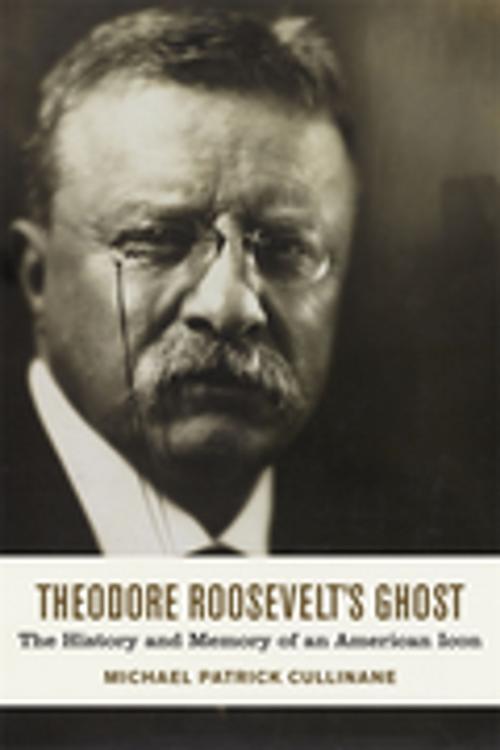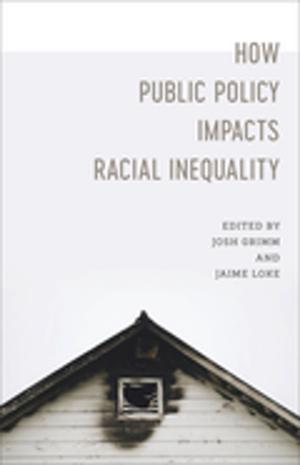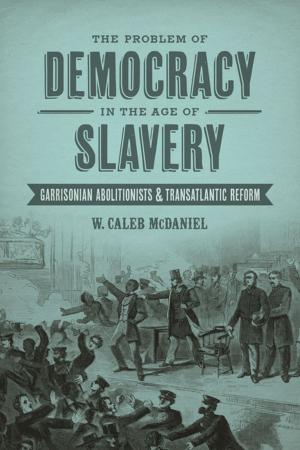Theodore Roosevelt's Ghost
The History and Memory of an American Icon
Nonfiction, History, Americas, United States| Author: | Michael Patrick Cullinane | ISBN: | 9780807166741 |
| Publisher: | LSU Press | Publication: | December 11, 2017 |
| Imprint: | LSU Press | Language: | English |
| Author: | Michael Patrick Cullinane |
| ISBN: | 9780807166741 |
| Publisher: | LSU Press |
| Publication: | December 11, 2017 |
| Imprint: | LSU Press |
| Language: | English |
A century after his death, Theodore Roosevelt remains one of the most recognizable figures in U.S. history, with depictions of the president ranging from the brave commander of the Rough Riders to a trailblazing progressive politician and early environmentalist to little more than a caricature of grinning teeth hiding behind a mustache and pince-nez. Theodore Roosevelt’s Ghost follows the continuing shifts and changes in this president’s reputation since his unexpected passing in 1919.
In the most comprehensive examination of Roosevelt’s legacy, Michael Patrick Cullinane explores the frequent refashioning of this American icon in popular memory. The immediate aftermath of Roosevelt’s death created a groundswell of mourning and goodwill that ensured his place among the great Americans of his generation, a stature bolstered by the charitable and political work of his surviving family. When Franklin Roosevelt ascended to the presidency, he worked to situate himself as the natural heir of Theodore Roosevelt, reshaping his distant cousin’s legacy to reflect New Deal values of progressivism, intervention, and patriotism. Others retroactively adapted Roosevelt’s actions and political record to fit the discourse of social movements from anticommunism to civil rights, with varying degrees of success. Richard Nixon’s frequent invocation led to a decline in Roosevelt’s popularity and a corresponding revival effort by scholars endeavoring to give an accurate, nuanced picture of the 26th president.
This wide-ranging study reveals how successive generations shaped the public memory of Roosevelt through their depictions of him in memorials, political invocations, art, architecture, historical scholarship, literature, and popular culture. Cullinane emphasizes the historical contexts of public memory, exploring the means by which different communities worked to construct specific representations of Roosevelt, often adapting his legacy to suit the changing needs of the present. Theodore Roosevelt’s Ghost provides a compelling perspective on the last century of U.S. history as seen through the myriad interpretations of one of its most famous and indefatigable icons.
A century after his death, Theodore Roosevelt remains one of the most recognizable figures in U.S. history, with depictions of the president ranging from the brave commander of the Rough Riders to a trailblazing progressive politician and early environmentalist to little more than a caricature of grinning teeth hiding behind a mustache and pince-nez. Theodore Roosevelt’s Ghost follows the continuing shifts and changes in this president’s reputation since his unexpected passing in 1919.
In the most comprehensive examination of Roosevelt’s legacy, Michael Patrick Cullinane explores the frequent refashioning of this American icon in popular memory. The immediate aftermath of Roosevelt’s death created a groundswell of mourning and goodwill that ensured his place among the great Americans of his generation, a stature bolstered by the charitable and political work of his surviving family. When Franklin Roosevelt ascended to the presidency, he worked to situate himself as the natural heir of Theodore Roosevelt, reshaping his distant cousin’s legacy to reflect New Deal values of progressivism, intervention, and patriotism. Others retroactively adapted Roosevelt’s actions and political record to fit the discourse of social movements from anticommunism to civil rights, with varying degrees of success. Richard Nixon’s frequent invocation led to a decline in Roosevelt’s popularity and a corresponding revival effort by scholars endeavoring to give an accurate, nuanced picture of the 26th president.
This wide-ranging study reveals how successive generations shaped the public memory of Roosevelt through their depictions of him in memorials, political invocations, art, architecture, historical scholarship, literature, and popular culture. Cullinane emphasizes the historical contexts of public memory, exploring the means by which different communities worked to construct specific representations of Roosevelt, often adapting his legacy to suit the changing needs of the present. Theodore Roosevelt’s Ghost provides a compelling perspective on the last century of U.S. history as seen through the myriad interpretations of one of its most famous and indefatigable icons.















